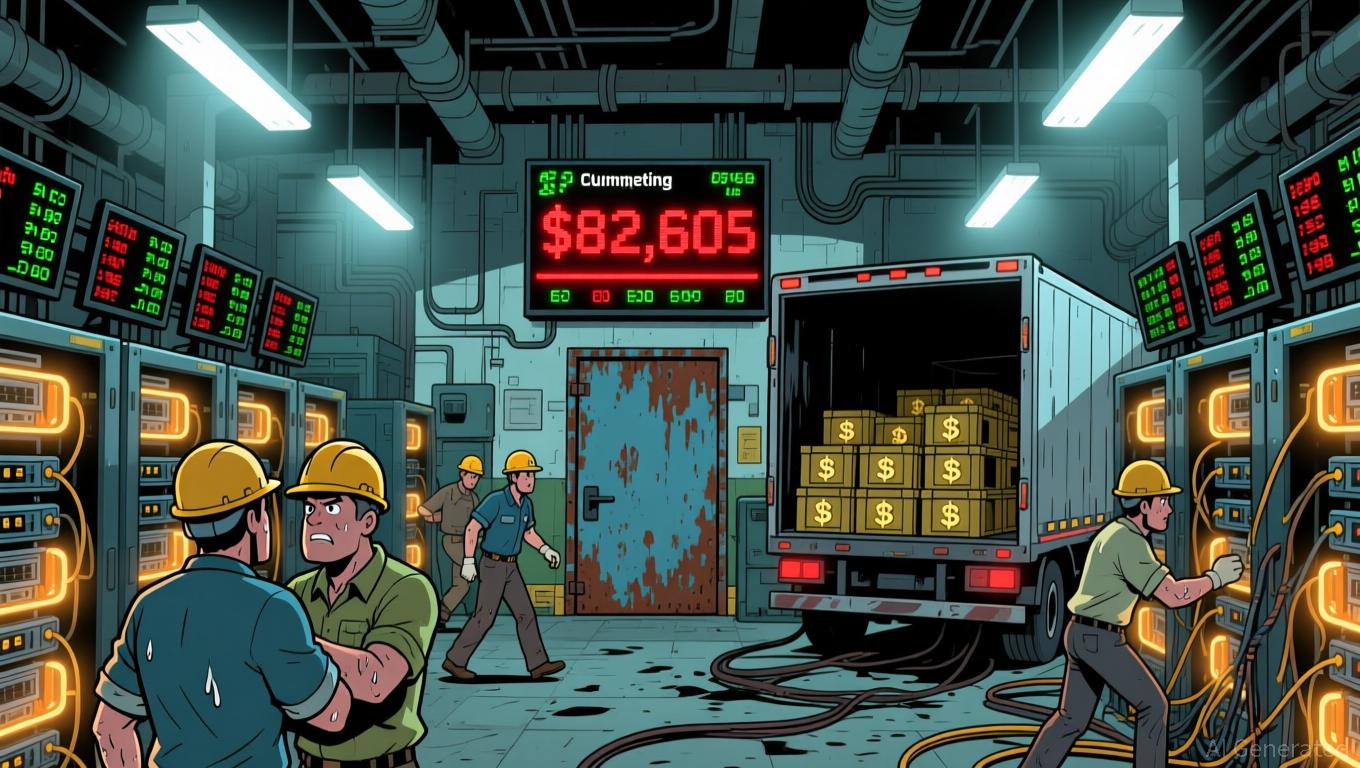Fed Policymakers Disagree on Balancing Inflation and Employment in December Rate Cut Discussion
- Fed officials clash over December rate cut amid resilient economy and stubborn inflation, with Boston's Collins and Dallas' Logan urging caution while New York's Williams supports flexibility. - Market pricing for a 25-basis-point cut rose to 70% after Williams' dovish remarks, contrasting with Collins' emphasis on monitoring labor market slowdown risks. - Government shutdown delays key data like October CPI, complicating policy decisions as officials rely on outdated metrics to balance inflation control
Talks of a possible rate cut by the Federal Reserve in December have sparked intense internal discussions, with policymakers split over whether to loosen monetary policy as the economy remains robust and inflation persists. The upcoming December 9-10 meeting is shaping up to be a crucial event, as officials balance the risks posed by a tight labor market with the ongoing effort to bring inflation down to the 2% goal.
Susan Collins, President of the Federal Reserve Bank of Boston, has been a prominent voice of caution, telling CNBC that "a restrictive policy stance is still very suitable at this time" and showing
On the other hand, John Williams, President of the New York Fed and a permanent voter on the FOMC, has indicated a willingness to consider a rate cut in the near future. Speaking at a Central Bank of Chile event, Williams said the Fed could lower rates without compromising its inflation objectives, pointing out that
This split highlights the broader uncertainty within the FOMC. With the federal funds rate currently at 3.75%-4.00% following two back-to-back cuts, officials
Mohamed El-Erian, Allianz’s chief economic adviser, urged investors not to overreact to Williams’ more dovish tone, warning that the FOMC still faces "significant challenges" in reaching a consensus
This ongoing debate highlights the Fed’s challenge: cutting rates to prevent possible labor market deterioration while making sure inflation continues to fall. With figures like Collins and Logan urging restraint and Williams advocating for adaptability, the December meeting could see an unusual split among policymakers, possibly resulting in dissent.
At present, markets remain unsettled. The S&P 500 inched up on Friday as investors processed the mixed messages, but overall sentiment remains fragile amid persistent economic uncertainty
Disclaimer: The content of this article solely reflects the author's opinion and does not represent the platform in any capacity. This article is not intended to serve as a reference for making investment decisions.
You may also like
Bitcoin Updates: Saylor Questions MSCI's New Classification, Stands by MSTR's Main Business Model
- Michael Saylor defends MicroStrategy's operational core, rejecting fears of $8.8B outflows if MSCI reclassifies it as a crypto-heavy entity. - JPMorgan warns index exclusion could trigger mechanical selling, worsening liquidity and capital-raising challenges amid Bitcoin's 30% price drop. - MSTR's Bitcoin-backed credit program faces scrutiny as its stock plummets 67% and premium to holdings collapses to 1.1X, signaling eroding investor confidence. - MSCI's January 2026 decision will test MSTR's narrative
Bitcoin Updates: Miners Offload $2.6 Billion in Holdings Amid Escalating AI Power Struggle
- Bitcoin's 30% drop below $90,000 triggered mass miner liquidations, with $2.6B in BTC sold as hashprice hit $34.49/PH/s - an all-time low. - Surging energy costs in key mining hubs like Texas (18% YOY Q3 2025) and AI-driven grid demand intensified operational pressures on miners. - ETF outflows reached $1.425B in five days, while BlackRock-led $40B AI infrastructure consortium signals industry shift toward AI workloads over Bitcoin mining. - Miners like Core Scientific pivot to AI contracts (3-4x Bitcoin

Bitcoin News Today: Bitcoin miners face a fight for survival as they contend with soaring hashrates and falling prices
- Bitcoin miners face profitability decline as record hashrate clashes with falling prices, extending hardware payback periods beyond 1,200 days. - Operators pivot to HPC/AI services to offset losses, while ETFs show volatile redemption/inflow swings amid institutional re-entry and Abu Dhabi's IBIT stake tripling. - JPMorgan upgrades mining stocks citing $19B HPC contracts, but record-low Bitcoin reserves ($2.6B liquidated) highlight deteriorating economics with hashprice at $34.49/PH/s. - Sector survival

Facebook challenges Reddit by introducing nicknames in Facebook Groups
